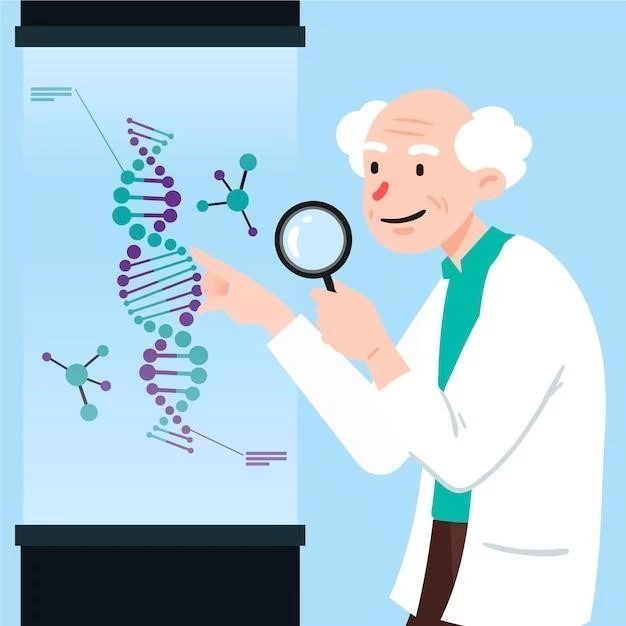Understanding Kozlowski-Krajewska Syndrome
When delving into the topic of Kozlowski-Krajewska syndrome, it is crucial to grasp the complexities of this rare genetic disorder. Understanding the various aspects of this disease can aid in its diagnosis and management, ultimately improving the quality of life for those affected.
Introduction to Kozlowski-Krajewska Syndrome

Kozlowski-Krajewska syndrome, a rare genetic disorder, is characterized by a range of developmental abnormalities and skeletal issues. This condition, known for its autosomal recessive inheritance pattern, presents with distinct clinical features such as facial dysmorphism, short stature, and intellectual disability. Understanding the complexities of this syndrome is essential for healthcare professionals involved in its diagnosis and management.
Individuals with Kozlowski-Krajewska syndrome may exhibit skeletal abnormalities like osteochondrodysplasia, leading to challenges in mobility and physical growth. The presence of mutations in specific genes contributes to the manifestation of this disorder, impacting various aspects of a person’s health and development. Recognizing the signs and symptoms early on can facilitate timely interventions and support for affected individuals and their families.
Moreover, the association of Kozlowski-Krajewska syndrome with developmental delay, strabismus, and other ocular abnormalities underscores the multidimensional nature of this condition. Healthcare providers must be equipped to conduct thorough evaluations and assessments to diagnose this syndrome accurately. By raising awareness about Kozlowski-Krajewska syndrome, professionals in the medical field can enhance their ability to address the unique needs of patients with this genetic disorder.
Genetic Basis of the Syndrome
The genetic basis of Kozlowski-Krajewska syndrome lies in its autosomal recessive inheritance pattern, where both parents must carry a mutated gene to pass it on to their offspring. This rare genetic disorder is attributed to mutations in specific genes that play a critical role in skeletal development and overall growth. Understanding the genetic underpinnings of Kozlowski-Krajewska syndrome is paramount for healthcare professionals working to diagnose and manage this condition.
Individuals with Kozlowski-Krajewska syndrome inherit two mutated copies of the responsible gene, leading to the characteristic features associated with the disorder. These genetic mutations disrupt normal skeletal development, resulting in skeletal abnormalities such as short stature and osteochondrodysplasia. By unraveling the genetic complexity of this syndrome, researchers and medical experts can gain insights into the underlying mechanisms that drive its clinical manifestations.
Genetic testing plays a crucial role in confirming a diagnosis of Kozlowski-Krajewska syndrome by identifying the specific gene mutations present in an individual. This information not only aids in confirming the clinical diagnosis but also helps in understanding the inheritance pattern within families. Counseling families about the genetic basis of this syndrome can provide valuable information regarding the likelihood of passing the disorder to future generations.
Advancements in genetic research have paved the way for a deeper understanding of Kozlowski-Krajewska syndrome at the molecular level. By elucidating the genetic basis of this rare condition, scientists and healthcare providers can explore targeted therapeutic approaches that may offer potential treatment avenues in the future. Collaborative efforts in genetic studies are essential for advancing our knowledge of Kozlowski-Krajewska syndrome and improving clinical outcomes for individuals affected by this genetic disorder.
Clinical Features of Kozlowski-Krajewska Syndrome
Kozlowski-Krajewska syndrome presents a spectrum of clinical features that collectively characterize this rare genetic disorder. Individuals affected by this syndrome often exhibit a combination of physical and developmental abnormalities that require comprehensive evaluation and management. Recognizing the diverse clinical manifestations associated with Kozlowski-Krajewska syndrome is crucial for healthcare professionals involved in the care of affected individuals.
Facial dysmorphism is a common clinical feature of Kozlowski-Krajewska syndrome, with affected individuals displaying distinctive facial characteristics that can aid in clinical diagnosis. These facial abnormalities may include a prominent forehead, a flattened nasal bridge, and abnormal ear shape. Understanding the nuances of facial dysmorphism in the context of this syndrome can assist clinicians in identifying potential cases and initiating appropriate evaluations.
Short stature is another hallmark feature of Kozlowski-Krajewska syndrome, with individuals typically exhibiting growth delays and limitations in height. Monitoring growth parameters and conducting regular assessments are essential to track the progression of short stature in affected individuals and implement interventions to support their growth and development. Collaborating with endocrinologists and growth specialists can further optimize the management of short stature in individuals with this genetic disorder.
Intellectual disability is a significant clinical aspect of Kozlowski-Krajewska syndrome, with affected individuals experiencing challenges in cognitive development and intellectual functioning. Providing specialized support services and educational interventions tailored to the unique needs of individuals with intellectual disabilities is essential for promoting their overall well-being and maximizing their potential. Collaboration with psychologists, therapists, and special education providers can enhance the quality of life for individuals affected by this aspect of the syndrome.
Additionally, skeletal abnormalities such as osteochondrodysplasia contribute to the clinical complexity of Kozlowski-Krajewska syndrome, impacting the skeletal structure and mobility of affected individuals. Comprehensive orthopedic assessments and interventions are necessary to address skeletal issues and improve the quality of life for individuals with this genetic disorder. Coordination with orthopedic specialists can help optimize treatment strategies and promote better outcomes for individuals with skeletal abnormalities associated with Kozlowski-Krajewska syndrome.
Diagnosis and Management of Kozlowski-Krajewska Syndrome
Diagnosing and managing Kozlowski-Krajewska syndrome requires a multidisciplinary approach to address the diverse clinical features and complexities associated with this rare genetic disorder. Healthcare professionals play a pivotal role in the timely diagnosis, comprehensive evaluation, and ongoing management of individuals affected by this syndrome. Collaborative efforts among various specialties are essential to provide holistic care and support for patients with Kozlowski-Krajewska syndrome.
Diagnostic assessment for Kozlowski-Krajewska syndrome involves a thorough clinical evaluation, genetic testing, and imaging studies to confirm the presence of characteristic features and genetic mutations associated with the syndrome. Healthcare providers should maintain a high index of suspicion for this rare condition in individuals presenting with developmental delay, skeletal abnormalities, facial dysmorphism, intellectual disability, and other clinical manifestations specific to Kozlowski-Krajewska syndrome.
Genetic testing plays a crucial role in establishing a definitive diagnosis of Kozlowski-Krajewska syndrome by identifying the underlying gene mutations responsible for the disorder. Molecular genetic studies help differentiate this syndrome from other genetic conditions with similar clinical presentations, guiding healthcare providers in developing tailored management strategies for affected individuals. Access to genetic counseling services is essential to support individuals and families in understanding the genetic basis of this syndrome.
Once diagnosed, the management of Kozlowski-Krajewska syndrome focuses on addressing the unique needs of each individual through a personalized care plan. Collaborating with a team of specialists, including geneticists, pediatricians, orthopedic surgeons, developmental pediatricians, and rehabilitation therapists, can optimize the management of the syndrome and improve outcomes for affected individuals. Regular monitoring and follow-up evaluations are integral components of ongoing care for individuals with Kozlowski-Krajewska syndrome.
Interventions aimed at managing the clinical manifestations of Kozlowski-Krajewska syndrome may include physical therapy, speech therapy, educational support services, orthopedic interventions, and nutritional interventions to address growth and developmental challenges. Psychological support and counseling play a crucial role in supporting the emotional well-being of individuals and families navigating the complexities of this genetic disorder. Emphasizing a patient-centered approach that prioritizes individualized care and support is essential in enhancing the quality of life for individuals with Kozlowski-Krajewska syndrome.
